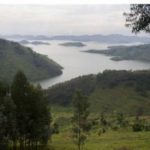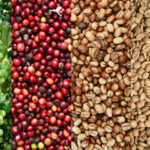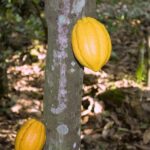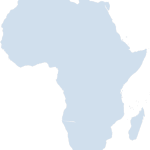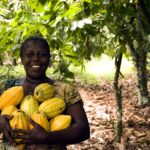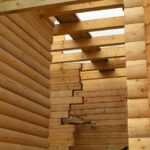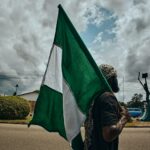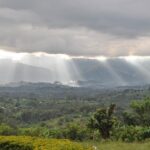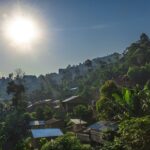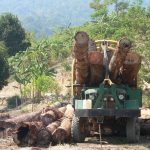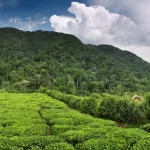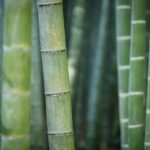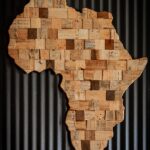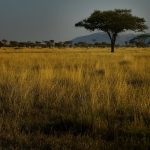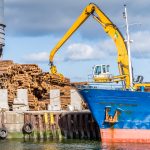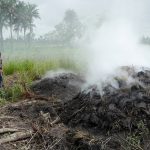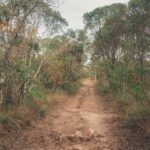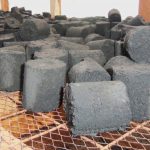Timber
Other Forest-Risk Commodities

URA enforcement officers stationed at border areas are reportedly aiding truck drivers to smuggle timber and charcoal. There are allegations that URA seals are being used to disguise the trucks. Often they are disguised as timber traders from South Sudan.
Uganda is working to register 2.8 million coffee farmers as part of its efforts to meet the EU Deforestation Regulation (EUDR) requirements through digital traceability. As of April 2025, 1.25 million farmers had already been registered. While some exporters have begun using digital traceability tools, the government aims to expand adoption across the entire coffee sector via a national platform aligned with the EU’s due diligence standards. Although registration remains voluntary, industry stakeholders warn that unregistered producers risk exclusion from international markets. To accelerate the process, the government is supporting outreach efforts through local authorities, farmer cooperatives, and digital platforms, with registration teams deployed to remote districts to raise awareness, provide training, and assist farmers in signing up.
The National Forestry Authority apprehended a group suspected of illegal forest activities in Uganda’s Mabira Central Forest Reserve. The men were accused of various illegal activities, including logging, timber dealing, and charcoal production.
In 2013, Uganda produced 23,000 metric tonnes of cocoa beans, generating $54 million in revenue.
By the end of 2024, production more than doubled to 52,000 metric tonnes, earning the country $296 million.
A ZAM transnational investigation conducted across six African countries has revealed the complicity of governing political elites in rapid deforestation. At the same time, many of these elites are receiving billions of dollars and euros in ‘green’ funds from international partners, including the UN, the EU, and the World Bank. Previous instalments of this investigation, already published by ZAM, have highlighted this pattern in Uganda, Nigeria, and Mozambique. The latest findings from Cameroon, Ghana, and Malawi are in line with the earlier results.
Cocoa represents Uganda’s fourth largest export, after coffee, tea and fish. However, exports have been dropping due to disease, aging trees and low productivity attributed to limited access to quality inputs, lack of knowledge of modern techniques and financial constraints that limit farmers’ ability to invest in crop quality and yield.
On top of this, the EUDR will introduce additional challenges. There is no national policy governing the cocoa sector which causes inconsistent support to farmers and other stakeholders. The policy gap must be addressed to align Uganda’s cocoa sector with international standards and market demands.
One of the world’s fastest growing economies is now ramping up high-value timber production to meet a population surge.
Uganda, with one of the world’s fastest-growing economies turning to mass timber – rather than traditional brick-and-motor construction – to close a 2-million-plus deceit in housing supply and kick-start its circular economy.
The trade in precious minerals and timber is fuelling armed military groups fighting that continue to cause instability both in the Congo and across the region. That is, according to Monitor, an Uganda-based publication, which reports that trade-in smuggled resources is adding to regional instability in Central Africa.
It comes after the United States government, this week, reported that the trade in illegal minerals was making it increasingly difficult to tame arms flow in the battleground – echoing a United Nations panel of experts and environmental watchdogs, which have raised the alarm on the trade.
Amid hundreds of millions paid by donors to the Ugandan government for forest-saving projects, a powerful logging syndicate linked to the same government continues the desertification. In Nigeria, also despite much “green” funding, the government itself clears out the trees. Forest communities are impoverished in the process.
The EU and FAO announce a new project in Uganda which will achieve economies of scale by aggregating smallholder tree farmers and wood processors. Access to affordable finance for small and medium enterprises in the wood sector will be facilitated through financial literacy programs, business advisory support, and improved connections with the financial sector.
Part of an ongoing investigation in how Congo’s trees are smuggled through East Africa, this article highlights:
-
smuggled Democratic Republic of Congo hardwood to furniture makers who import more than $1m worth of timber a year
- Ugandan prisoners are involved in the manufacturing of this timber into furniture
- Leading furniture companies in Kampala also rely on mahogany that is smuggled outright from the DRC or transported with fake documents or no documents
- Once timber arrives at the markets in Kampala and furniture workshops, it is no longer illegal, due to loopholes in the law.
The illicit DRC-Uganda raw wood trade has a difficult past, involving the military, rebels, high-level politicians and unabated trafficking, laid out in the second part of our investigation into the eastern Africa timber industry.
According to the investigation, raw wood without documentation is smuggled openly in Lia and along 160km around the village. The illegal entry points are not hidden in heavily forested areas but occur in small settlements that are often not far from official borders. The smugglers are facilitated by people who live in communities on both sides of the border.
For at least 25 years, high-ranking Ugandan officials have turned a blind eye to pillaging hardwood from the Congo Basin in the DRC, according to the UN. The illegal, and rampant, deforestation continues as a small village turns into a timber station.
This is the first article in a four-part investigation into a Congolese wood trafficking hub on the border of Uganda. It reveals a burgeoning trade and an open secret.
This series was produced in partnership with the Pulitzer Center Rainforest Investigations Network.
Criminals in East Africa are exploiting the multiple conflicts in the north-east of the DRC to allow the trafficking of its protected hardwoods.
The key economies in the East African Community – Kenya, Rwanda, Tanzania and Uganda – are all benefiting from this timber trafficking and flagrantly breaking their environmental pledges. The illicit trade is facilitated by ‘big men’ close to security services and politicians across the region – they ensure the border controls fail.
Corrupt payments by the loggers and truckers to border checkpoints oil the wheels of the trade, where fake certificates of origin are produced for a large fee.
As global tea demand grows by over 2% annually, the pressure on land for cultivation may lead to increased deforestation and greenhouse gas emissions, further intensifying the impacts of climate change. Once tea is plucked it must go through various stages of processing, including withering and drying: energy-intensive processes that often use vast amounts of wood or, in some cases, fossil fuels such as coal. This not only results in CO2 emissions, but also has the potential for “hidden deforestation” for wood to burn.
Uganda has registered better forest cover in recent years, but there are also increasing cases of illegal logging and forest destruction. The country’s net forest cover gain rose from 9 percent in 2017 to 13 percent in 2020. The article focuses on the use of bamboo in order to restore lost tree cover.
The first high-resolution (5 m) and continental-scale
mapping of land use following deforestation in Africa, including humid and dry forests.
Results show, not surprisingly, that the causes of forest loss vary by region. In general, small-scale cropland is the
dominant driver of forest loss in Africa, with hotspots in Madagascar and DRC. In addition, commodity
crops such as cacao, oil palm, and rubber are the dominant drivers of forest loss in the humid forests of
western and central Africa, forming an “arc of commodity crops” in that region. At the same time, the
hotspots for cashew are found to increasingly dominate in the dry forests of both western and southeastern Africa, while larger hotspots for large-scale croplands were found in Nigeria and Zambia.
This report details the findings on the state of Environmental Human Rights Defenders (EHRDs) in Tanzania, Uganda, and the Democratic Republic of Congo (DRC). Overall, the findings demonstrate that despite their resilience, EHRDs navigate a complex and hostile environment characterized by an ambitious development agenda and growing investor activity sanctioned by the state authorities on one hand, and the quest for accountability and transparency, on the other. EHRDs are generally regarded as impediments to development programs and face severe reprisals for their work.
African foresters want a change in government policies to allow easier trade in timber, taking advantage of available forests and to weed out exploitative trade routes.
They argue that archaic laws are, in fact, fuelling illegal harvesting and sale of trees which in turn cause losses to revenue agencies.
Studies commissioned by the African Forest Forum revealed that Africa’s export challenges in the forestry sector are complex.
The research papers uncovered a scarcity of documented trade data on forest products occurring between borders, for example.
They showed that the quantities and sales remain unknown, highlighting the concealed opportunity for governments to generate significant revenue.
According to Dr Cheboiwo, efforts have been made to condemn illegal logging activities, but less attention has been given towards implementing reforms.
Ugandan President Yoweri Museveni has issued an executive order banning charcoal burning and trade in the in five northern subregions in order to conserve the environment. Museveni also castigated security officers for corruption and for assisting the charcoal business in the region.
Residents of Kei sub-county in Yumbe district have accused security personnel of providing protection to trucks carrying Afzelia Africana logs, making it difficult for the community to intervene.
Ugandan President Yoweri Museveni and local leaders have banned the charcoal trade, but in a country with a booming population, and where only 1.7 million of about eight million households are connected to grid electricity, charcoal for cooking is too precious.
A politician recently launched a campaign against the runaway illegal charcoal trade in the region, and a growing number of local and anti-charcoal vigilantes are emerging to enforce bans on the trade.
The Acholi region, where Gulu is, currently supplies a considerable chunk of the charcoal consumed in Uganda cities such as Kampala. Ugandan charcoal is also in big demand in Kenya, and a lucrative legal and illegal cross-border trade in the commodity thrives.
Lamwo, Uganda | THE INDEPENDENT | The police in Palabek Gem sub-county, Lamwo district have impounded more than 200 logs of the endangered Afzelia Africana tree species.
*****
The article also states that following a February 24th letter by the Minister of Environment, all forest products still in the Lamwo district are illegal. The impounding of the forest products comes one week after the Minister of State for Water and Environment, Beatrice Atim Anywar, issued a directive directing all the Chief Administrative Officers to recall all produce permit books issued to the district from the Ministry of Water and Environment with immediate effect.
On January 11th, 2023, Anywar first issued a directive banning all documents facilitating the commercial production, trade, and movement of charcoal and other forest products in Gulu district.
The directive followed the growing illegal charcoal production and timber logging, which has led to environmental degradation in the Acholi sub-region. However, leaders in the sub-region suggested that the directive should cover all districts in the Acholi sub-region.
Reporters Without Borders (RSF) is concerned about an increase in threats to journalists trying to cover illegal logging and deforestation in the Zoka rain forest, in northwestern Uganda’s Adjumani district.
Uganda’s tropical high forests have been declining rapidly and conservationists have been relentless in sounding the alarm over their imminent disappearance in the next two decades unless something is done now.
Despite the directive by police to all units to enforce the suspension, the level of cutting, transportation and trade in afzelia logs has continued. The authorities say dealers now forge South Sudanese documents and bribe officials at border posts in advance before the logs are taken out at night.
The Zanzibar Declaration on Illegal Logging, signed on Wednesday at a global gathering on forests in South Africa, aims to improve communication between customs authorities and collaboration among forest officials from the east and southeast African nations.
Kenya loses around $10 million annually due to the illegal cross-border wood trade with Tanzania, while Tanzania loses more than $8 million, according to studies cited by the World Wildlife Fund (WWF), a green group backing the new agreement.
Click here to access the Global Illegal Logging and Associated Trade (ILAT) Risk assessment tool and to download the Forest Trends User Guide describing the functionality of the ILAT Risk Data Tool.
Click here to access the Cattle Data Tool.

